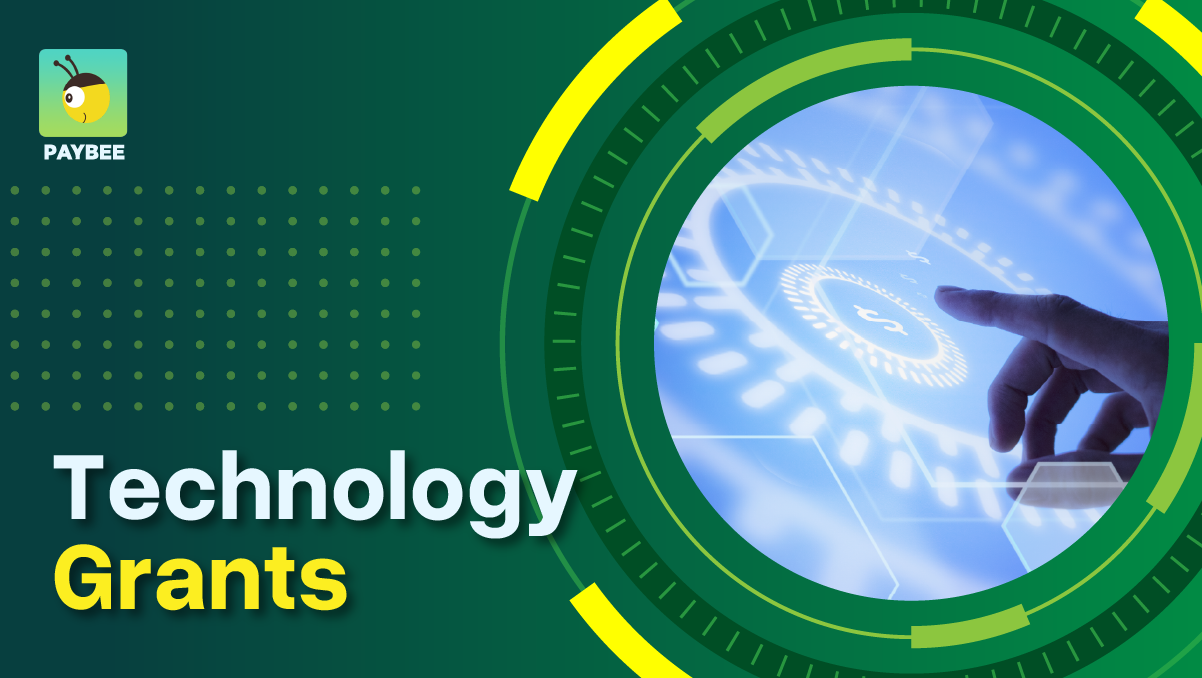
Selecting an Auctioneer for Your Next Charity Auction
Selecting an Auctioneer for Your Next Charity Auction
“Going once, going twice, sold!”
Those are words every nonprofit or charity wants to hear at their fundraising auction (preferably after the auction item in question receives a lot of bids). And thanks to all the in-person, virtual, and hybrid auctions you can host today with fundraising platforms like PayBee, you’ll have a lot of opportunities to sell your items and raise money.
But there’s another crucial element needed to make your auctions successful: a professional auctioneer.
Some nonprofit organizations get confused by this. If fundraising software does so much, couldn’t one of your staff members just auction off the items themselves? Why take on the additional expense of hiring an auctioneer?
But the truth is, a professional auctioneer offers a lot of necessary services to your fundraiser. Skilled auctioneers help sell your items by describing them in exciting ways. They remind your audience that they’re there to support your programs. And they keep the excitement level up — in both your in-person and virtual venues — which encourages more bidding and raises more money for your nonprofit.
Let’s take a close look at the type of qualities a professional auctioneer should have. We’ll also examine the type of digital tools PayBee provides for live auctions and see how our software can mesh with an auctioneer’s services to make your fundraisers more successful.

Choosing the right auctioneer
These days, auctioneers need to improve their game to keep up with the changes in modern fundraising. It’s not enough to get a crowd hyped up in person — today, auctioneers need to be able to connect with audiences in live and virtual environments, sometimes at the same time. These new services and skills need to factor into your decision when choosing a good auctioneer for your fundraiser.
Here are some of the most important questions you should ask yourself when considering a professional auctioneer:
How many auctions do they do in a year?
When you hire a professional auctioneer, you want to make sure you’re hiring someone who not only is experienced but is working regularly. Part-time auctioneers may not be able to generate the same type of enthusiasm that full-time auctioneers do.
If you can, attend one of your prospective auctioneer’s recent events. This will give you a better idea of how smoothly this auctioneer operates and how well they work a crowd.
How much do they charge?
Understanding how your auctioneer charges for their services is very important to keep you from going over-budget. Be aware of the following types of charges:
- Flat Rate: This is usually a single basic price for all the auctioneer’s services. However, be sure to learn if there are any hidden charges or additional fees before hiring the auctioneer. Ask if the price is all-inclusive or if you’ll be charged for other expenses.
- Base and Commission: A base + commission model includes both a flat rate and a percentage of what the auctioneer raises for you at the event. In this case, make sure to set a ceiling for the commission portion of their fee. If your auction ends up raising $100,000, you probably don’t want your auctioneer to take 20% of all your profits, especially if that cuts too deep into your budget.
- Straight Commission: With a straight commission, your auctioneer will provide their services for free. However, they will take a larger commission out of the money raised once the auction is concluded.
- Flat Rate and Bonus: In this payment model, an auctioneer gets a flat fee and a bonus (or several bonuses) if they hit certain fundraising goals during the auction.
- Extra Fees: Some auctioneers may want you to cover some of their expenses. For instance, if they need to travel to your event, they may charge you for their hotel room, meals, or parking. If the auctioneer uses “bid spotters” or “ringmen” to help excite your audience and increase the number of bids, you may be expected to pay for them as well.
Some professional auctioneers may also offer auctioneering packages with different prices and additional benefits (such as consulting services). In this case, take the time to study each package and decide which one is most appropriate to your event in terms of price and services.
How knowledgeable are they about your organization?
Professional auctioneers are committed to working with your nonprofit or charity, sometimes for several months as you set up your event and activities. This means they should already be familiar with your organization from day one.
Ask your auctioneer how they feel about your organization’s mission. See if they have any ideas for improving your event and if they have any questions about your organization or event. If an auctioneer asks you what your charity or nonprofit does when you first meet, that’s not a good sign.
Can they generate enthusiasm?
One of the main reasons nonprofits hire professional auctioneers is for how well they can “work a crowd.” Sure, fundraising software can help your organization reach larger audiences, but it takes a skilled emcee or auctioneer to get your guests excited about donating and bidding.
Ask if the auctioneer can share any recent videos of other charity auctions they’ve done. These videos will show you how well different crowds of people respond to their style. Do the audiences in the video match up with the type of people on your guest list? What type of vibe do you get from the auctioneer when they perform?
Some auctioneers may also use “bid spotters” (also called “ringmen”) during the event. These professionals help “warm up” an audience before the auction, add to the energy of the auction, and congratulate winning bidders. Used correctly, bid spotters can increase the amount of money you raise at a live in-person auction, but you’ll want to make sure they fit within your budget.
How skilled are they at managing different auctions and using online technology?
2020 forced many auctioneers to expand their skill set. While professional auctioneers may have known how to MC a traditional in-person live auction, being an auctioneer for a virtual or hybrid auction requires different talents. Virtual auctioneers should be familiar with online auction software like PayBee’s and how to incorporate it into their activities.
Make sure your auctioneer is familiar with mobile bidding technology like the type provided by the PayBee system. Giving your audience the ability to place bids online instantly through their smartphones and mobile devices is a great way to increase bidding at your auction — but you don’t want an auctioneer who’s just learning about this technology to run your event.
Do they offer support for your event?
Professional auctioneers like live/virtual/hybrid fundraising and event consultant Emily Quinn (aka Auction Emily) do much more than simply emcee your auction. As a professional event consultant, Quinn also offers unlimited phone, Zoom, and email support during your project, as well as event budget review, management consultation, post-event debrief/follow-up, and much more in her Premium Consultation Package.
Such services can be invaluable for your fundraiser since they provide you with an extra source of support and a professional opinion that helps your event run smoother. Be sure to learn how much experience your auctioneer has in event fundraising to see how useful their expertise can be in planning your gala.
Using PayBee to enhance all your auctions
Hiring a skilled auctioneer is essential to running a successful charity auction. However, you also want to make sure your auctioneer has the proper tools to manage each auction — especially if you’re hosting a virtual or hybrid auction. To ensure your auctions run as smoothly as possible, PayBee’s equipped its online fundraising platform with multiple digital tools that can be used for in-person, virtual, and hybrid live auctions.
Here's how our software can help enhance every type of auction.
Audience Monitor
Perfect for both in-person and hybrid auctions, an audience monitor shows all live bids on a screen in real-time. This helps your audience keep up with all the other bidders (both in-person and online). Knowing how many people want a certain auction item can excite a crowd, stimulating further bidding.
Smart Bid Paddles
Mobile bidding apps may have made bidding more convenient for online bidders, but that doesn’t mean the traditional auction paddle has become obsolete. Having helped host hundreds of successful auctions, PayBee has discovered in-person audiences still enjoy holding up physical paddles when they bid on an item and can be motivated to bid more with them. For this reason, once guests register for your event, PayBee auto generates a numbered bid paddle for each of your guests.
Each bid paddle is generated in PDF format and can easily be printed out on your home printers. You can then attach each sheet to any handle of your choosing.
Of course, this being the digital age, we’ve also tweaked our paddles with some high-tech enhancements. Each paddle comes with a QR code unique to each bidder. By scanning these codes with the PayBee app, we’ve made it easier for you to keep track of each guest’s bids. The QR codes also make other activities, including purchasing items, making donations, and closing out their digital shopping carts at checkout much quicker and more convenient for both you and your guests.
Auctioneer Monitor
Along with the audience monitor, your auctioneer will be able to use PayBee’s auctioneer monitor which shows all the live bids to the auctioneer. The monitor also shares all relevant auction item info, including the starting bid, bid increments, and the current bid. All this information makes it much easier for an auctioneer to keep track of all the incoming bids (even from multiple digital and in-person audiences), but auctioneers should take time to familiarize themselves with our system to take full advantage of the monitor during in-person and hybrid auctions.
PayBee Livestream
Purely virtual auctions require a reliable livestream system that lets all your online guests participate in your auction as if they were all in the same room. This requires your livestream to have a very low latency, or a short delay between the time information is sent and when it appears on your screen.
PayBee’s livestream offers zero second latency, granting your event professional broadcast level latency. This is very necessary for your virtual auctions and imperative in hybrid auctions where your online bidders will be participating with people at the actual auction. Letting your virtual guests know they’ll be getting low latency live streaming will let them know they’re competing on equal footing with the in-person audience, which will encourage more bidding.
Moving Forward
Want to get in touch with some of the most experienced and professional auctioneers in the business? Start by visiting the PayBee Partner Ecosystem. You’ll find the contact information for several auctioneers who have helped hundreds of charities and nonprofits host successful in-person, virtual, and hybrid auctions.
Would you like to see what it’s like to actually participate in a live virtual auction held on PayBee’s online fundraising platform? Sign up for a free demo of the PayBee system. You’ll be able to take part in a mock auction (complete with virtual money) that shows you how exciting an online auction can be. Afterwards, you’ll be able to ask all your questions about hosting successful fundraisers to our team of experts. Sign up today and see how you can take your auction to the next level!
Start Fundraising






